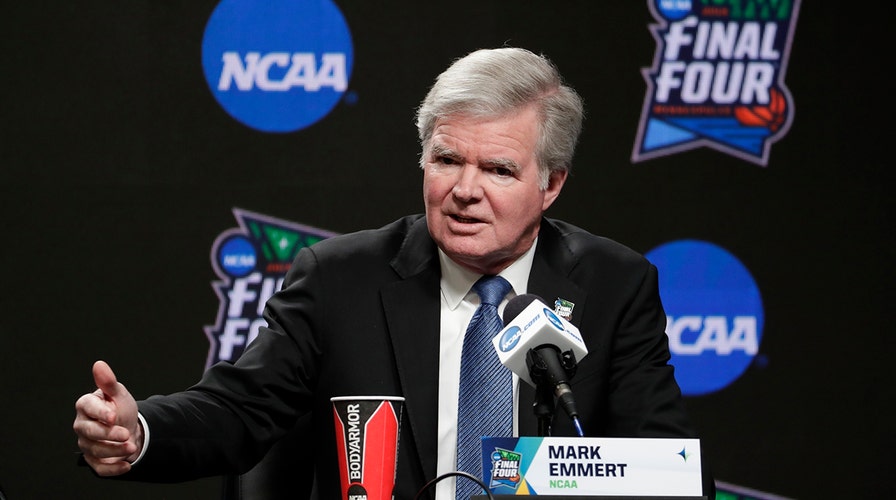Fox News Flash top headlines for June 22
Fox News Flash top headlines are here. Check out what's clicking on Foxnews.com.
The NCAA dismissed Supreme Court Justice Brett Kavanaugh’s scathing opinion after it was unanimously decided college athletics’ governing body illegally restricted education-based benefits that could be used as compensation to student-athletes.
NCAA President Mark Emmert and the organization’s lawyers said Kavanaugh’s opinion held little water.
CLICK HERE FOR MORE SPORTS COVERAGE ON FOXNEWS.COM
"The notable thing is that eight other justices did not agree with that and wouldn't sign on to it," the NCAA’s outside lawyer Jeffrey Mishkin told USA Today on Monday. "So I don't think that you can make very much of that concurrence. It's his own view, and he's writing for himself. So, I think that's just not at all central to what's been decided today."
Kavanaugh gave the concurring opinion after Justice Neil Gorsuch wrote the initial opinion. He said the NCAA’s compensation rules raise "serious questions under antitrust laws" and gave three points on the matter. He went against the NCAA’s argument that the lack of compensation levels the playing field. He wrote the NCAA’s argument was "circular and unpersuasive" and the organization was engaged in "price-fixing labor" and called the matter a "textbook antitrust problem."
"The bottom line is that the NCAA and its member colleges are suppressing the pay of student athletes who collectively generate billions of dollars in revenues for colleges every year. Those enormous sums of money flow to seemingly everyone except the student athletes. College presidents, athletic directors, coaches, conference commissioners, and NCAA executives take in six- and seven-figure salaries. Colleges build lavish new facilities. But the student athletes who generate the revenues, many of whom are African American and from lower-income backgrounds, end up with little or nothing," he wrote.
JUSTICE KAVANAUGH DELIVERS BLISTERING OPINION AFTER SCOTUS RULING: 'THE NCAA IS NOT ABOVE THE LAW'
In conclusion, Kavanaugh noted the longstanding traditions in the NCAA could not disqualify the organization from any potential antitrust issues.
"To be sure, the NCAA and its member colleges maintain important traditions that have become part of the fabric of America—game days in Tuscaloosa and South Bend; the packed gyms in Storrs and Durham; the women’s and men’s lacrosse championships on Memorial Day weekend; track and field meets in Eugene; the spring softball and baseball World Series in Oklahoma City and Omaha; the list goes on. But those traditions alone cannot justify the NCAA’s decision to build a massive money-raising enterprise on the backs of student athletes who are not fairly compensated. Nowhere else in America can businesses get away with agreeing not to pay their workers a fair market rate on the theory that their product is defined by not paying their workers a fair market rate. And under ordinary principles of antitrust law, it is not evident why college sports should be any different. The NCAA is not above the law."
Kavanaugh’s critique was praised across social media.
The NCAA sent a statement to its member schools across all divisions, according to The Athletic.
CLICK HERE TO GET THE FOX NEWS APP
"Even though the decision does not directly address name, image and likeness, the NCAA remains committed to supporting NIL benefits for student-athletes," Emmert said. "Additionally, we remain committed to working with Congress to chart a path forward, which is a point the Supreme Court expressly stated in its ruling."
Fox News’ Ronn Blitzer contributed to this report.


